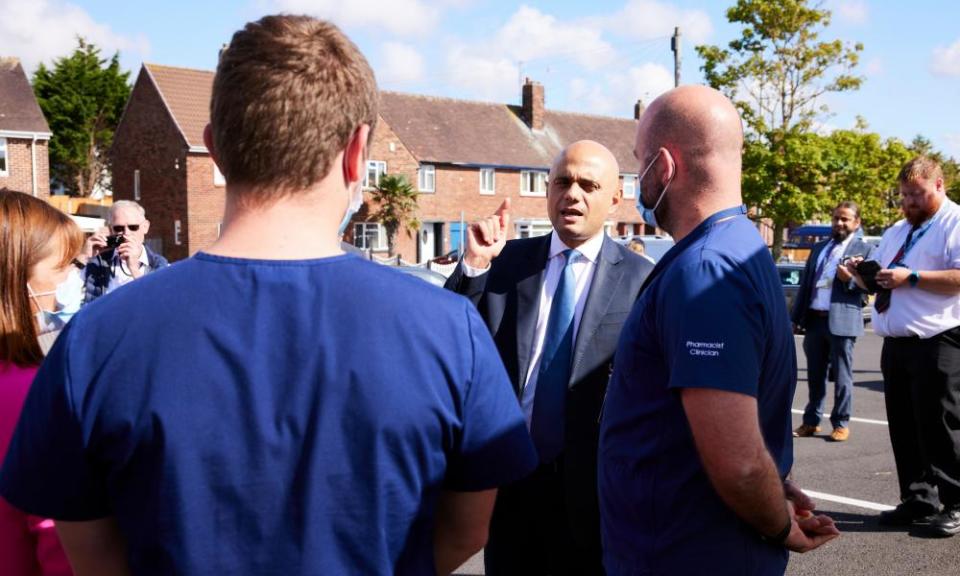Sajid Javid promises health shake-up to fight ‘disease of disparity’

Sajid Javid has pledged a new approach to public health to tackle the “disease of disparity”, after he admitted the coronavirus pandemic had laid bare the UK’s underlying health inequalities.
The health secretary said the virus had proved that life chances varied greatly depending on where a person lived, and during the pandemic healthy people were getting healthier and unhealthy people unhealthier. “We need to reverse that trend,” he said.
He promised that the government’s “levelling up” commitment would start with redressing an imbalance in healthcare services.
In a speech in Blackpool on Thursday organised by the Centre for Social Justice, Javid said that now the UK was passing the peak of the pandemic, the underlying health of the country had been revealed.
Where people lived, their race, weight and other factors had had a major impact on how much they were affected over the past 18 months, Javid said.
Hospital Covid admissions in the most deprived parts of England were nearly three times higher than in the least deprived areas and the death rate was 2.4 times higher, while minority ethnic groups made up one-third of critical care admissions for the virus despite comprising one-seventh of the population.
“These are symptoms of a different disease: the disease of disparity,” Javid said. “Realising our ambition to level up in health means tackling our social backlog in mental health and public health with the same spirit and sense of urgency as we tackled the pandemic. Nowhere is this mission more urgent than when it comes to our mental health and wellbeing.”
He said it had been clear that a new public health approach was needed even before the pandemic. “We have an ageing population, and an increase in people with multiple health conditions. We’re living longer, yet spending more of our life in poor health. And the poorer you are, the greater the proportion of your life is spent in ill-health.”
After the government’s winter plan was unveiled this week, including contingency restrictions, Javid declined to say whether people should expect their Christmas plans to be disrupted for a second year running.
He told the Guardian the government would continue “trying to persuade people” who were vaccine sceptical or hesitant to get inoculated to limit the chance of having to reimpose any measures.
Dr Jennifer Dixon, the chief executive of the Health Foundation charity, said Javid’s diagnosis of the problems was welcome but action on the wider factors that affected health, such as education, housing and welfare, was essential to solving them.
“We now need action to follow these warm and welcome words,” she said, pointing to the end of the universal credit uplift, which would “impact the poorest and sickest”. Dixon added: “The key test for the health secretary’s vision will be whether he can develop a coherent cross-government strategy.”
Marianna Mitchell, 51, a former army medic meeting other veterans at the community centre where Javid gave his speech, revealed her own experience of healthcare inequality. “When you try and ask the system for help, it’s not there. I’m a type 1 diabetic and I can’t believe that across the country, depending on which health authority you live under, you get different types of treatment,” Mitchell said.
She said she had been told she could have only two years to live and she had recently exchanged stories with another veteran with the same condition who lived in Birmingham and had received “fantastic” treatment. “It should be the same across the board,” Mitchell said. “Basically I’ve been given a death sentence. I’ve got five grandchildren, I want to see them grow up and get married but at this rate it ain’t going to happen.”

